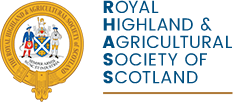RHASS supports Scottish representatives at World Agritourism Conference
Earlier this year, RHASS supported a group of seven agritourism business owners from across Scotland to attend the World Agritourism Conference in Vermont, USA.
Scotland’s agritourism sector is flourishing, and many countries in the world look to it as an example of good practice of a national strategy. RHASS is proud to support and help develop this strategy, and events like this are vital for keeping up to date with the latest innovations from around the world.
Caroline Millar is the Scottish Agritourism Sector Lead and was part of that delegation – read her report from the conference below.
--
A delegation of seven agritourism business owners from Scotland attended the World Agritourism Conference in Vermont, USA in September. RHASS supported attendance at the event by covering registration fees and the pre-conference tours.
This was only the second international agritourism conference, following the inaugural event in Italy in 2018.
The event brought together farmers, economic development professionals, and researchers from fifty-two countries across six continents.
Myself and Kay Wilson spoke at the event, sharing information about the Scottish Enterprise Monitor Farm Programme as a driver for business growth and new entrants to agritourism.
The trip started off by flying to Newark, New York and driving up to Burlington, Vermont over three days, visiting various farms in upstate New York and south Vermont on the way.
The farms were researched in advance. They included a visit to Billingtons Farm in Woodstock, a great example of a quality visitor attraction combined with a working dairy farm and a museum. Visitors could get up close with the dairy cows as well as learning about farming and the history of agriculture and immigration in Vermont.
Another example was a visit to Maple Leaf Farm, where Mary and Jeff Smith spent the afternoon providing an insight into beef and maple syrup production on their farm near Shrewsbury. Jeff said that 50 years ago, 20% of Vermont was in trees compared with 80% nowadays, with under 20% in agriculture, meaning that many family farms have stopped production. All beef from the farm is sold from a farm shop and at farmers’ markets in the local community. Maple syrup is what generates the profits needed to survive as Vermont produces 50% of the USA’s maple syrup, with over 2.5 million gallons produced per annum. We took part in sampling different strengths and types of syrup and bought the biggest steaks ever for the BBQ that night.
On arrival in Burlington, we began the official conference tour. There was a real mixture of businesses, not all on a working farm which re-enforced our sector decision in 2020 to be very specific about what agritourism is in Scotland.
The conference itself brought 350 delegates together in one location with another 150 watching online from around the world.
--
It was a common theme from a variety of countries attending the conference that they wished their country had a clear definition for agritourism. Scotland’s definition is that agritourism takes places on a working farm or croft that produces food. Some of the businesses we visited on the tours were value adding to food but located in a town, not on farm.
The tour also made us appreciate our high-quality standards in Scotland and stringent environmental health standards which we often curse, but are essential for a fantastic customer experience.
It was a great opportunity to re-connect with existing international contacts and make new connections Ten years on from my RHASS-sponsored Nuffield Scholarship travels, one of the most inspiring farmers I met during my research came to Vermont to speak about agritourism in Tasmania. Tim Parsons now welcomes 13,000 international visitors a year on to this farm for farm tours. It was great to catch up with Tim and get a first-hand insight into agritourism in Australia.
Many delegates at the conference are looking to Scotland as a leader in agritourism due to our well organised and pro-active network, knowledge exchange focus and national strategy. Australia have launched their own national strategy in the last month and have used Scotland’s version as a template.
As a result of this year’s conference, an official international body is being established for global agritourism and I have been asked to help establish this body with other world leaders in the sector. Scotland hopes to host the World Agritourism Conference in the next few years and we know that we can put on a fantastic showcase of high quality agritourism businesses to visit.
There is also a good opportunity to connect with others from around the UK to talk about growing agritourism. The only in person group from the UK, Scotland’s seven-person-strong delegation was acknowledged by all who attended.
We are very grateful to RHASS for their support to help us showcase Scotland on an international stage.
Those who participated were Fiona Pollock, Ardross Farm, Fife; Kay Wilson and Anne Lennox, Lennox of Lomond, Argyll; Fiona Scott, Fearn Farm, Easter Ross; Liz Phillips, Cowden Farm, Aberdeenshire; Agnes Smith, Stralochy Farm, Perthshire and Caroline Millar, Balkello Farm, Angus.
--
If you’re interested in finding out more about becoming a RHASS member, click here. To find out more about the awards & grants RHASS offers, click here.
